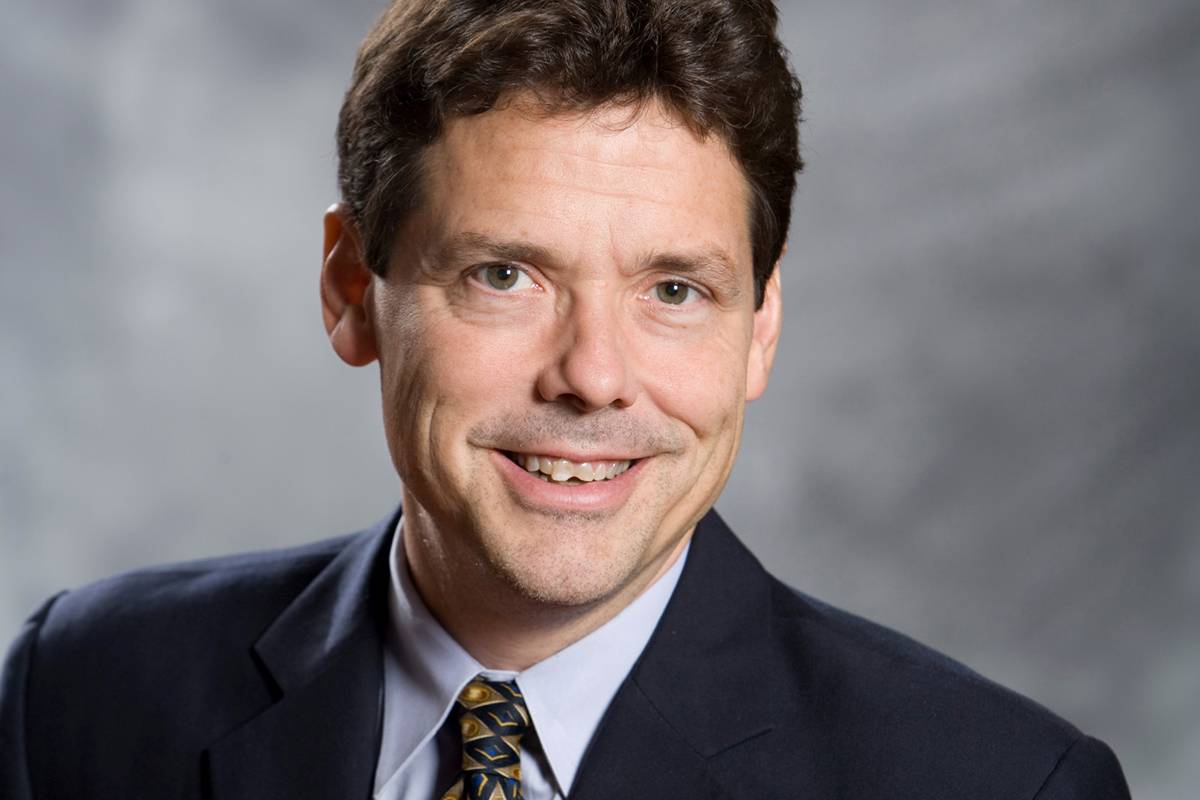Gordon Phillips is New Academic Director of Center for Private Equity and Entrepreneurship
On January 1st of this year, Gordon Phillips began his appointment as academic director of the Center for Private Equity and Entrepreneurship (CPEE) and the C.V. Starr Foundation Professor. In his role as the academic leader of the CPEE, Phillips succeeds Colin Blaydon, the founding academic director of the center and a former dean of Tuck.

On January 1st of this year, Gordon Phillips began his appointment as academic director of the Center for Private Equity and Entrepreneurship (CPEE) and the C.V. Starr Foundation Professor. In his role as the academic leader of the CPEE, Phillips succeeds Colin Blaydon, the founding academic director of the center and a former dean of Tuck.
Blaydon, the William and Josephine Buchanan Professor of Management, has been a fixture at Tuck since 1983, and will continue his involvement with the school and the center in several research and course development projects. “Tuck has benefited greatly from Colin’s deep knowledge of and connections to the field of private equity, as well as his initiative, vision and stewardship of the center since its founding,” said Richard Sansing, the associate dean for the faculty and the Benjamin Ames Kimball Professor of the Science of Administration.
Phillips, a Chicago native, joins Tuck from the University of Southern California, where he was the Charles E. Cook Community Bank Chair and Professor of Economics. Along with his ongoing research on private equity, Phillips and three colleagues from USC are the recent recipients of a $500,000 grant from the National Science Foundation to study the evolution of private and public companies, which they will do by text-mining the Wayback Machine, an archive of Internet pages.
Q: Talk a little about your path to Tuck
A: I’ve been teaching for 20 years now. I started out in the Midwest, was at the University of Maryland for many years, and then was at the University of Southern California. I grew up in Chicago, went to Northwestern for my undergraduate degree, and went to Harvard for my Ph.D. and did the first year of the Harvard MBA program, so I’m very familiar with MBA students and what they go through when they’re taking courses. I always thought that I might leave academia at some point, just out of sheer boredom, but I have never gotten bored as there are always new challenges, new research projects and new students.
Q: What is interesting to you about the field of private equity?
A: Private equity is very controversial nowadays. People think of it as the one percent getting rich. What I think needs to be recognized is that private equity helps companies get better and is helping America compete in different ways. Hopefully, the end result is increased employment. What’s always attracted me about private equity is active investing, or actively trying to solve a problem or fill a need and taking an active hands-on role to make a new success story.
Q: What are your research interests?
A: I started out studying private equity and leveraged buyouts, with a number of papers looking at operational changes after companies went private and looking at what they do to make companies successful, trying to learn from those examples. Then I’ve moved into security issuance, studying public companies issuing privately and private companies raising capital; looking at things like preferred stock and other financing vehicles. Lately I’ve been studying why successful private companies are staying private much longer than in the past. Look at Uber, a $50 billion company that regular people can’t yet invest in—that’s a major change.
Q: What are your plans for the CPEE and teaching?
A: The center is doing many things really well, and we’re going to continue doing those. We have an annual Private Equity Conference that’s really impressive. We have four student-run funds. We’re also going to add some things, such as research fellows and potentially executives in residence, so we get more interaction with the broader community, both on the research side and the practitioner side. We’ll reach out to Tuck alumni, people doing research, and people working in the private equity community. I want the center to be more of a forum for exchanging research ideas, and a method for distributing best practices to the broader community. I’m going to be teaching the Private Equity Finance course in the fall. I am planning on putting a little more emphasis on venture capital in the course, and giving more foundation work to students who haven’t been exposed as much to private equity.
